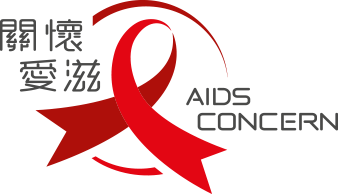- AIDS Treatment: Cocktail therapy
- Do people living with HIV need to take a lot of medication?
- Will the medication bring lots of adverse side effects?
- How to handle the adverse side effects?
- Do people living with HIV have a huge financial burden as HIV infection is a chronic disease?
- Where can people living with HIV get treatment under the Hong Kong public healthcare system?
- What is the process of treatment if one is diagnosed with HIV?
- Can people living with HIV stop medication if the CD4 goes back to normal level?
In 1995, David Da-i Ho, a Taiwanese-American medical doctor introduced an AIDS treatment called Highly Active Antiretroviral Therapy (HAART), known as “Cocktail therapy,” which was implemented in Hong Kong in 1996. HIV infection is a chronic disease; cocktail therapy increases the life expectancy of people living with HIV and allows them to live normally like others.
Cocktail therapy is a combination of drugs to prevent the virus from replicating. In Hong Kong, there are about 20 kinds of drugs currently.
Once the HIV virus enters the body, the immune system will be weakened and the people living with HIV will be prone to opportunistic infection. Cocktail therapy reduces the viral load to maintain the immune system and decrease the potential for opportunistic infections. Medical technology in Hong Kong can fight most of the opportunistic infections nowadays.
AIDS cannot be cured but cocktail therapy is recognised as the most effective treatment for the time being. It is important for people living with HIV to discuss with doctors when to start treatment and attend follow-up regularly to fight the disease.
People living with HIV do not need to take a lot of medicine every day. Medicine usually consists of one to three pills once or twice a day.
Many drugs have been released in recent years which have insignificant side effects. Common side effects include headache, diarrhea, vomiting, dizziness, etc., but they are manageable. If an infected person suffers from long term side effects, such as kidney problems or liver damages, they may change medicines depending on doctors’ judgment.
It is normal to have insignificant side effects such as headache, diarrhea, vomiting, dizziness, etc. People living with HIV should not cut down, skip or stop medicine without instruction. If they feel very unwell or experience any serious side effects, they should inform their medical staff.
No. Take the new fee on October 2017 as an example: it is HK$135 for the initial assessment, HK$80 for follow up and HK$15 for each prescription for a Hong Kong citizen visiting a specialist clinic in the public hospitals. The yearly fee for clinic visits is around HK$400-700, depending on the follow up frequency and medication.
There are three Specialist Out-patient clinics in Hong Kong currently, which are The Kowloon Bay Integrated Treatment Centre under the Department of Health, Queen Elizabeth Hospital and Princess Margaret Hospital under the Hospital Authority. They provide the best medical treatment to people living with HIV. A person in need may visit the one near them but they must make a reservation and have a doctor’s referral.
A detailed health checkup will be carried out upon the first visit to the specialist clinic. A doctor will meet the person living with HIV in 2 weeks’ time to assess his/ her situation and lifestyle to decide when to start medication. If the HIV status is stable, follow up will be in 3 to 4 months’ time.
For more information, please refer to the following videos published by AIDS Concern:
First registration at Specialist Out-patient Clinic:
https://www.facebook.com/1720959898172087/videos/1947841855483889/
First interview with specialist nurse:
https://www.facebook.com/1720959898172087/videos/1949805471954194/
First interview with doctor:
https://www.facebook.com/1720959898172087/videos/1949806948620713/
It is very dangerous to stop medication without doctors’ instruction because the CD4 cell count of the infected person will fall over time. If the CD4 cell count falls below 200, there are significant risks of developing serious illnesses. The lower the CD4 cell count, the greater damage to the immune system and risk of illness. In order to keep the CD4 cell count above 200 and maintain the virus load at an undetectable lever, people living with HIV should have a healthy lifestyle and take medication on time. This can also prevent opportunistic infections.

